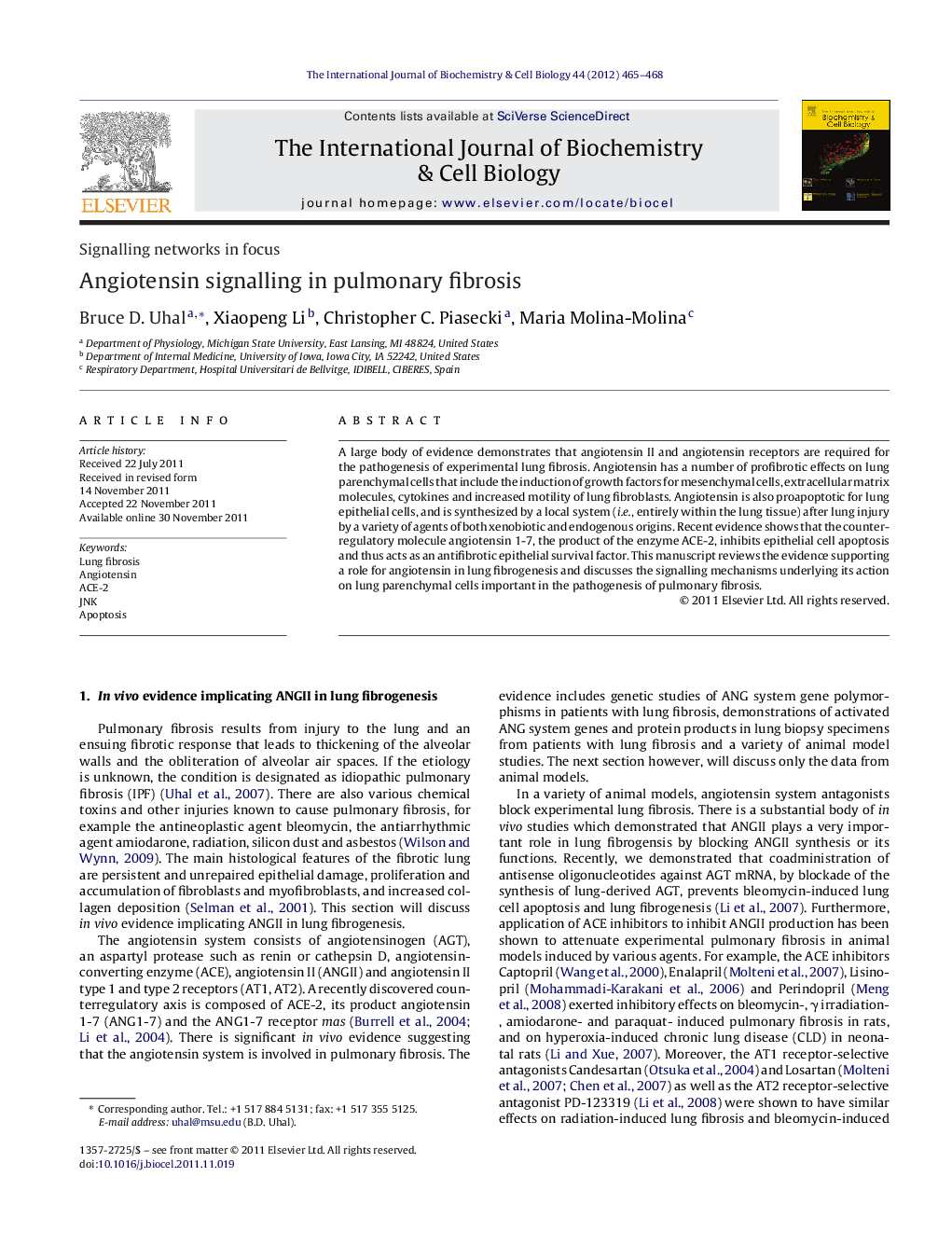| Article ID | Journal | Published Year | Pages | File Type |
|---|---|---|---|---|
| 1983743 | The International Journal of Biochemistry & Cell Biology | 2012 | 4 Pages |
A large body of evidence demonstrates that angiotensin II and angiotensin receptors are required for the pathogenesis of experimental lung fibrosis. Angiotensin has a number of profibrotic effects on lung parenchymal cells that include the induction of growth factors for mesenchymal cells, extracellular matrix molecules, cytokines and increased motility of lung fibroblasts. Angiotensin is also proapoptotic for lung epithelial cells, and is synthesized by a local system (i.e., entirely within the lung tissue) after lung injury by a variety of agents of both xenobiotic and endogenous origins. Recent evidence shows that the counterregulatory molecule angiotensin 1-7, the product of the enzyme ACE-2, inhibits epithelial cell apoptosis and thus acts as an antifibrotic epithelial survival factor. This manuscript reviews the evidence supporting a role for angiotensin in lung fibrogenesis and discusses the signalling mechanisms underlying its action on lung parenchymal cells important in the pathogenesis of pulmonary fibrosis.
